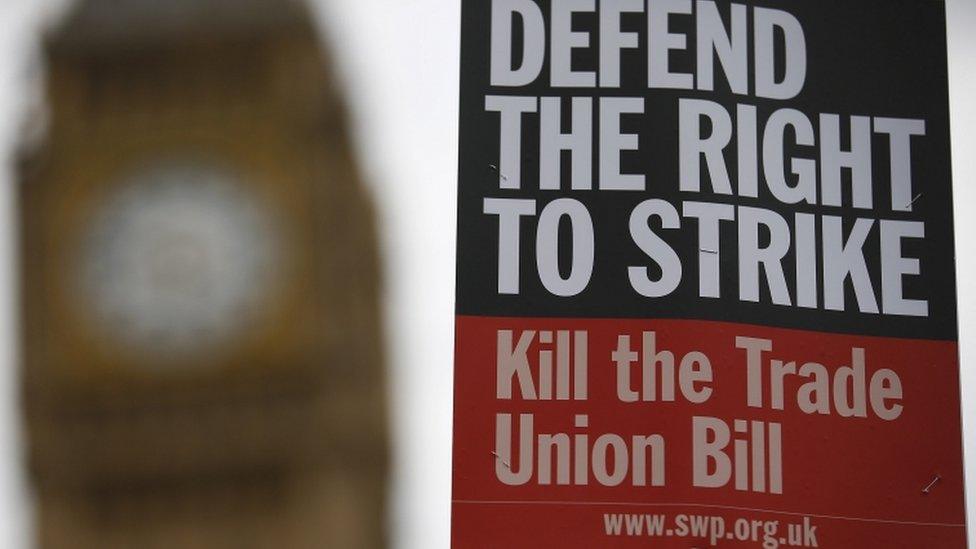SNP conference 2015: Judging the Scottish government's record
- Published
Nicola Sturgeon said she intends to prove that the SNP are the "best government with the best people, and the best ideas"
Maybe it's simply the longevity of my stint covering Scottish politics. (What? Who said that? Take that person's name.) Maybe it's my sense of history. But there were a couple of curious echoes in Nicola Sturgeon's SNP conference address today.
Firstly, the implication in her remarks that independence was not immediately and directly on the menu for next May's Holyrood elections. It was an issue to be settled subsequently, at a date yet to be determined, by a referendum yet to be called.
When people vote next May, they would be voting upon domestic issues: upon her record and that of her ministers in office.
To quote her directly: "Independence matters and we will never waver in our commitment to it. But what our manifesto says about jobs, schools and hospitals will matter just as much to people across Scotland."
Is the SNP more than independence?
And the echo? It is comparable to what Labour said, repeatedly and emphatically, when seeking election to the UK Parliament in 1997.
Each day, at news conferences, the wicked media - including self - wanted to talk about Labour's offer of a Scottish Parliament. Each day, Labour wanted to talk about the NHS and the like, stressing that devolution was for another day, for a referendum.
The parallel is not exact. Independence is much more prominent - fundamental, in fact - within the SNP offer. But the tactic is the same. To try to appeal beyond the constitutionally committed to broaden the party's pitch.
Nicola Sturgeon knows that it is not remotely sufficient for next year's elections - or even a subsequent referendum - simply to urge independence still more enthusiastically, with added vim and vigour, upon a nation which voted "No" just a year ago and which contains people who are hostile to independence, people who are sceptical and people who would rather hear another tune.
Hence her speech focused very substantially upon domestic policy matters:
the health service
education
childcare
the environment
justice and the rest.
Is she perhaps just a tiny fraction leery about the repeated claims by her opponents that she has neglected the day job, taken her eye off the ball - any phrase you care to use - while pursuing the aim of independence? Has it perhaps resonated just a touch?
Team Sturgeon are adamant that the claim has no substance. They say that ministers work hard at their devolved portfolios. Firstly, because it is the right thing to do and, secondly, because the SNP would not be in a position to advance independence without power. And they won't be in power without dealing with popular domestic concerns.
Still, the First Minister has plainly concluded that post-referendum, pre-election Scotland wants to hear about daily issues, wants to hear what she has done - and, more, intends to do.
Who said 'bring it on' and when was it said?
In which regard, she declared that if her rivals wanted a fight over the SNP's record, she was ready. "Bring it on", she declared. Cue eerie echo number two.
That, as I recall, was the phrase used by Wendy Alexander, external when, as Scottish leader of Labour, she briefly and temporarily suggested her party might welcome an early referendum on independence.
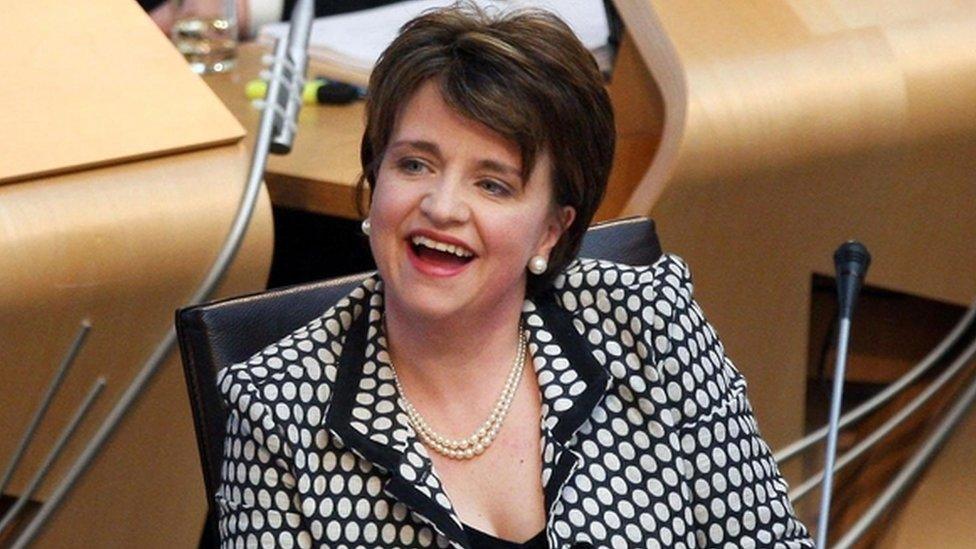
Wendy Alexander was the leader of Scottish Labour from 2007 to 2008
This was in 2008 when the SNP had only minority power at Holyrood and could not legislate for a plebiscite without support.
Ms Alexander's zeal was swiftly extinguished by a certain big clunking fist. "Bring it on" became "call it off". Just one among many examples over recent years of Labour's relative discomfiture over Scottish politics.
Still, back to Ms Sturgeon. She had a slight caveat to offer on the SNP's record. It was not perfect, it was affected by "the recession and Westminster austerity". But she insisted that it was eminently defensible.
As examples, she cited free university education - which she promised to sustain, although without the Burnsian touch of her predecessor.
Other examples included:
extended childcare
free school meals
competitive business rates
and NHS spending where she promised an extra £200m for elective treatment.
No complacency, she insisted. No looking back. Defend the record - but emphasise the offers ahead. And she made it personal.
It was, she said, about trust in her as she sought her own first mandate as First Minister. In particular, she said she wanted to be judged on her record in the years ahead on closing the gap in educational attainment.
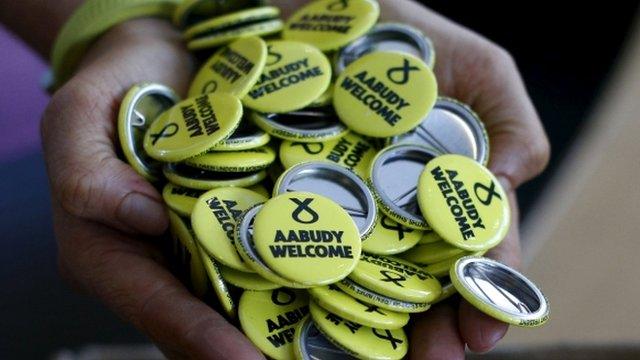
More than 3,000 SNP members attended their party's conference in Aberdeen
As forecast here, only a minimal reference to indyref2. That was dealt with in her opening remarks on Thursday. The focus now and for the period up to the elections in May will be on existing powers.
As noted earlier, that is driven by strategy. But it is also motivated by necessity. Yes, independence remains of fundamental importance - the fault line in Scottish politics.
But fretful families want to hear competing offers from the various parties on the NHS, education and the economy. Bring it on might be the apposite phrase.
PS: Inevitably, my attention now turns to Tannadice. Go Mixu!!
- Published17 October 2015
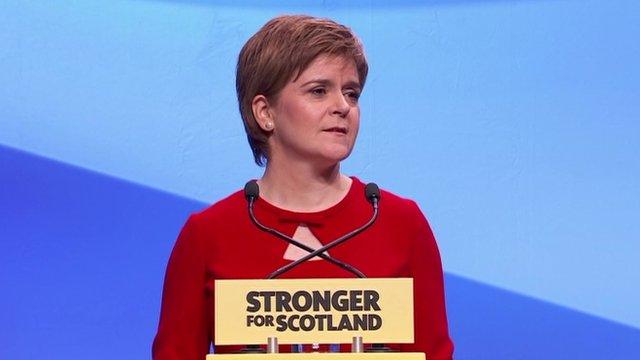
- Published17 October 2015
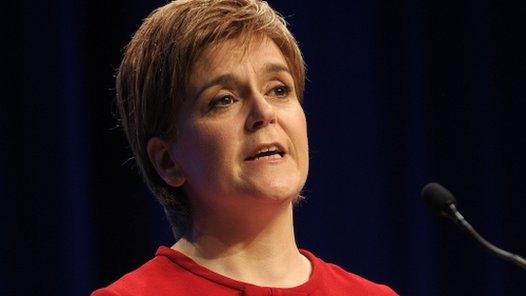
- Published17 October 2015
